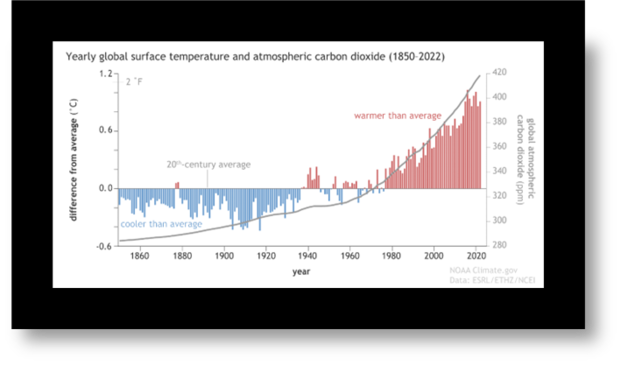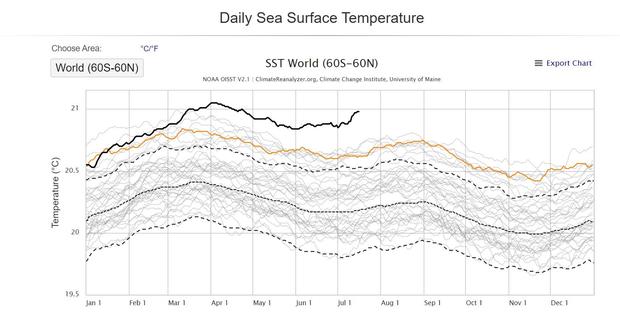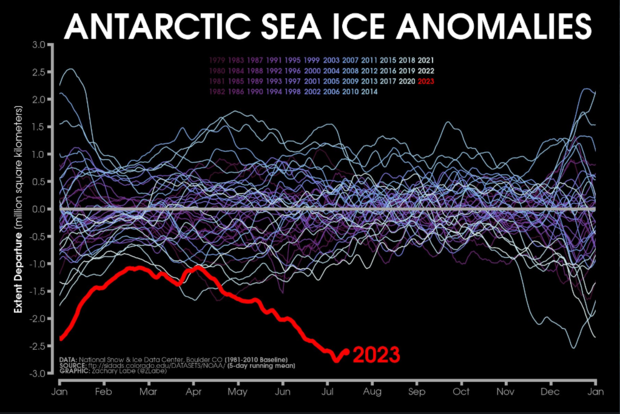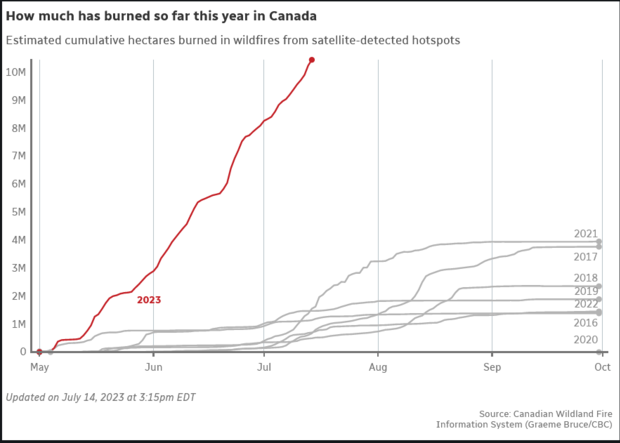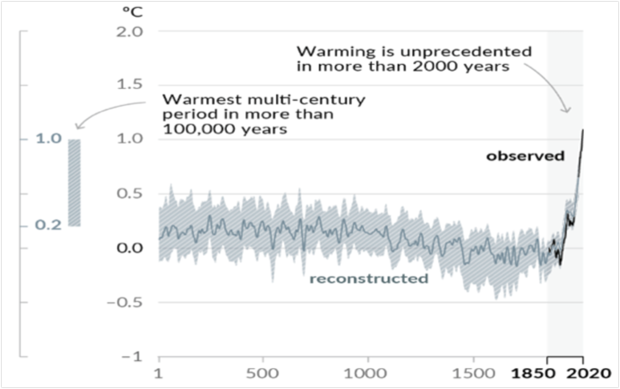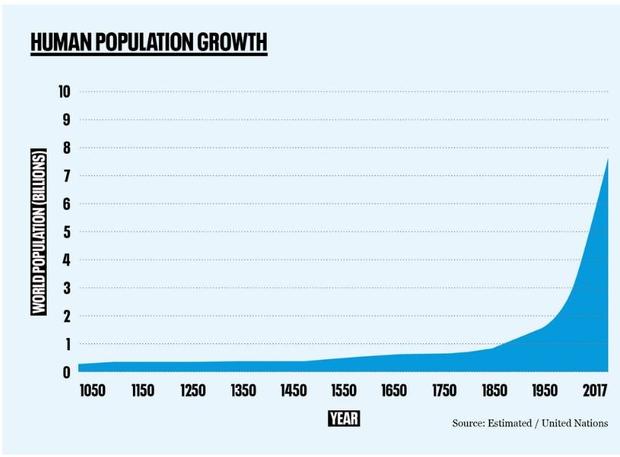Earth is warming at an alarming rate. Here's why it's happening and what you can do.
In the last week, the estimated global temperature hit its highest mark since the National Oceanic and Atmospheric Administration (NOAA) began collecting data in the late 1970s.
Why is Earth warming?
There is a rather clear culprit on why Earth is warming. Over 160 years ago, Irish physicist John Tyndall demonstrated the heat-capturing effect of greenhouse gases at the Royal Institution in London. He theorized that the planet would start warming from the burning of fossil fuels, which release considerable amounts of carbon dioxide (CO2). For reference, burning one pound of coal produces two pounds of CO2 in a gas state.
Since Tyndall's prediction, this is what happened to the concentration of CO2 in our atmosphere and the global temperature:
While the 150-year average global temperature is estimated to be around 60 degrees, last week Earth hit 63.1. And that's not the only heat record set over the last 30 days—the current average ocean temperature is the hottest ever recorded.
When it's summer here, it's winter in the Antarctic. This is the time when the ice sheet over the south pole reaches its maximum. This southern winter, it set a record for minimum coverage.
Meanwhile, the forests of Canada are burning and by the first week in July, the country had already seen 10 times the average of previous seasonal fire activity. To note, we still have yet to get through the heart of the fire season.
Earth has been warmer than this
Earth's geological history is divided into three eras. The current one is called the Cenozoic. The Cenozoic era started about 66 million years ago at the end of the dinosaurs and continues to today.
The Cenozoic started with the continents mostly in their current position and a flora and fauna that served as the basis for the biosphere currently on Earth. The warmest Earth got in this era is called the Paleocene-Eocene Thermal Maximum (PETM.) This was about 55 million years ago and lasted a mere 100,000 years. The best guess for this sudden and brief warming period was a massive ocean floor methane release triggered by a huge volcanic eruption. It only took a few thousand years for the event to ramp up, leading to a widespread extinction event. Earth was then considered to be in a "hothouse" period—a warm cycle that ended about 50 million years ago when the planet started a long run of interment ice ages. Earth climbed out of its last ice age—the end of Pleistocene epoch—about 13,000 years ago and has been in a warming spell since.
Climbing out of that 75,000-year-streak of cold, Earth hit a hot point about 6,000 years ago. The temperatures are thought to have hovered close to where current global temperatures are. The cause? Our elliptical orbit had our current Perihelion opposite in season. In layman's terms, Earth was closest to the sun in the summer, not winter like it is currently. And since most of the land mass on Earth sits north of equator, the entire world got warmer. As this effect started to wane, human civilization took hold.
In the last hothouse period in the Eocene, the average temperature is estimated to have been around 70 degrees. Back then, there were no ice caps; in fact, palm trees and large reptiles lived inside the arctic circle.
Still, the planet has been even hotter. The average global temperature hit around 85 degrees in the Cretaceous period about 92 million years ago. In the last great extinction, an extreme global heating event might have even gotten the average temperature to around 90 degrees. It was in this time period that over 70% of species were wiped out.
These warming events in the distant past have greenhouse gases to blame, either from volcanic eruptions or methane releases. These periods of warming also have a very important and sobering fact in common: eight billion people didn't live on the planet, a rather recent development:
This recent spike of global warming; however, doesn't come as a total shock. There was some expectation that the global temperature would approach a new record this summer. El Nino (a warming of the waters in the Pacific, off the coast of South America) quickly ramped up this spring. El Nino is known to increase temperatures over a large swatch of the globe. But before El Nino even started this year, large areas of the world's oceans already had higher-than-normal surface temperatures.
The warmest years on NOAA's record have all occurred since 2000. The Intergovernmental Panel on Climate Change calculates that human activity is responsible for about 1.1 degrees Celsius of global warming since the start of the industrial age. The global temperature is expected to exceed 1.5 degrees Celsius over the next 20 years, but the latest temperature trends could mean Earth gets to that point much quicker as the global emission of CO2 continues to increase. It grew about 1% in 2022 to an estimated 36.8 billion tons. Total greenhouse gas emissions are also at an all-time high, and multi-country agreements to reduce the burning of fossil fuels have not changed this trajectory.
How can we change this?
Global efforts, such as the Paris Climate Accords, summarize both the urgent need and immense difficulty in reducing carbon emissions. It requires nothing less than a global change in energy production and energy usage. It seems overwhelmingly daunting. But then again, so did winning World War II. Humankind seems to be the culprit for the current state of climate and where it is heading. Humans will have to work together to change its course. I would say the first step is for us to admit there's a problem.
